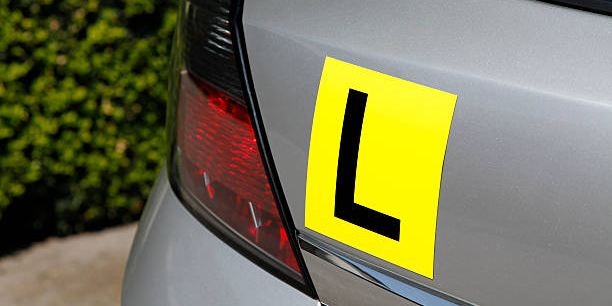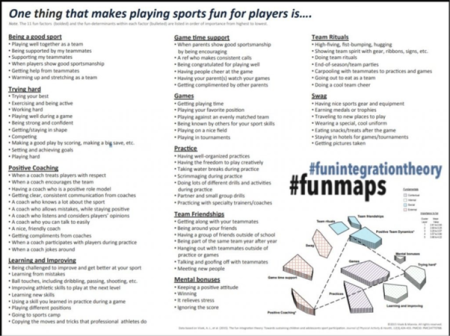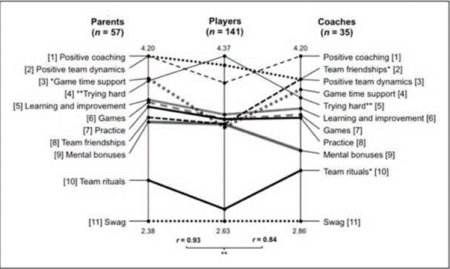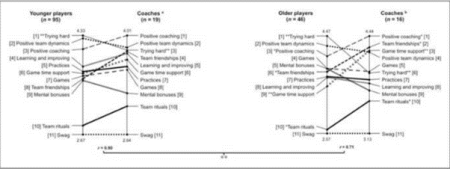
You are logged in as
Logout
You are logged in as
Logout
"Our students are well into their winter activities, and it is a busy time for co-curricular programmes. The extent of our co-curricular programmes at St Andrew’s College are an important part of our school culture and the Board of Governors commit significant resource to providing these experiences for our young people."
Dear Parents and Caregivers
Kia ora koutou katoa
The first five weeks of Term 2 have flown by. Our students are well into their winter activities, and it is a busy time for co-curricular programmes. The extent of our co-curricular programmes at St Andrew’s College are an important part of our school culture and the Board of Governors commit significant resource to providing these experiences for our young people. All teachers at St Andrew’s support these activities in some way on top of their classroom teaching commitments, and we are very grateful for the extra time they give. The Head Prefect theme ‘Blue and White, do it right’ is evident in the way our students conduct themselves in competitive situations and embrace our sports values of Respect Legacy; Take Responsibility; Show Courage; Stay Engaged. The recently proposed Sports Framework for St Andrew’s aims to keep these values firmly in the minds of our community.
Last week was our third Board meeting for the year. At the beginning of the year, we welcomed three new Board members; Jamie-Lee Tuuta (OC 2005) is a practicing barrister, and Alan Merry and Peter Armstrong from an engineering background, bring expertise to the Board table. All our Board members contribute their skills and time as volunteers in support of the strategic direction of the College, and we are well served by Board Chair Felicity Odlin, Deputy Chair Nick Letham, and the Board.
Key focus areas for 2023 include:
After a recent tour of the Performing Arts Centre construction site, I reflected upon the development of our campus over the last twelve years. As over 60 Old Collegians returned last weekend for their 50 Years On Reunion, most commented on how much the campus has changed since they last gathered ten years ago. Most of those who attended, last returned to the College for their 40 Years On Reunion. They were amazed at the transformation of the campus and the facilities our students enjoy today. The vision and commitment of successive Boards has overseen these developments for the benefit of today’s students.
Two weeks ago, I had the opportunity to speak to a number of delegates from Australasia attending the Learning Environments (LEA) Conference at Te Pae Convention Centre. Over 30 delegates, the majority of them architects, signed up to a two-hour visit to our St Andrew’s College campus. Our multi award-winning Centennial Chapel was a draw card for the visitors and I once again reflected upon the progress from the earthquake of February 2011 to the Centennial Chapel opening on 25 October 2016. It is interesting to note that our current Year 13 students were in Year 6 when the new Chapel was opened in 2016.
Thirteen years on from February 2011 most students have no memory of the Memorial Chapel. The Centennial Chapel has become central to their school lives, and it is here they gather to celebrate, learn, worship, sing, listen, reflect, mourn, and give thanks. It is a place that withstands the change of time and draws people together in sadness and joy.
In the words of the Foundation Stone:
Te toka tū moana, arā toa rongonui
Your strength is a rock, standing in raging waters
Looking back in time gives us a perspective on what we enjoy today. We are all a moment in time and the beneficiaries of those who have gone before us. The decisions and actions we make today creates the legacy of what we leave for those who come after us.
Ngā mihi nui
Christine Leighton
Rector

Winter has arrived in the best possible way, cold mornings followed by lots of sun and clear blue skies.
The term started with our annual House cross country competition, which is always such a colourful and fun event. Congratulations to all the students who ran their personal best and those who won their respective age groups.
Supporting our players on the sideline is a highlight of my job as it not only allows me to see the students taking part in something they are passionate about, but also gives me an opportunity to meet parents. Our co-curricular programme continues to be a cornerstone of the St Andrew’s College educational experience. Taking part in co-curricular activities develops or enhances many of the social skills of our students; commitment, resilience, teamwork, communication skills, etc., which will help them lead a healthy and fulfilling life. Thank you to all of you who attended the recent StACTalks evening run by Sports Leadership and Development Specialist John Haggart. John presented on our proposed Balance is Better framework which is an evidence-based philosophy to support quality sport experiences for all young people, regardless of ability, needs, and motivations. It is about young people staying involved in sport for life and realising their potential at the right time. Thank you also to all of you who provided feedback on this initiative.
This has also been a very busy term for our performing arts students; the highly acclaimed Senior College production of Bright Star, special concerts where our student singers and musicians were able to showcase their talents followed by a music tour. Moreover, our musicians and singers are spending huge amounts of time preparing for their respective Chamber Music and Big Sing competitions.
The first set of reports will be made available to you over the next month. Your child’s teachers have spent a considerable amount of time into giving feedback on what is going well and what the next steps need to be. Can I please encourage you to have a conversation with your child on how they may learn from the feedback and, where appropriate, make some changes. We will of course start next term with our very popular Parent-Student-Tutor Conferences. We are hoping to provide both the in-person and online experience for this important meeting.
Interest for places at St Andrew’s College remains strong, especially at Year 9 2024. A considerable amount of time has been invested into interviewing families who have no previous connection with the College. I am so excited about the quality of the applicants and being able to invite them to join our wonderful St Andrew’s community.
The drop-off zone continues to be extremely busy in the morning and especially after school when the weather is cold and wet. We have significantly increased the number of staff and student helpers supervising this high-risk area. To reduce the traffic issues experienced at these times can I ask you to park down the road or down one of the side roads and arrange to meet your child there.
The presentation and appearance of our students continues to be very important as it remains a statement about who we are and the pride we all have in being a member of the St Andrew’s community. I have been very pleased and delighted with the way most students continue to wear their uniform at school, however, please remind your child that they must wear their blazer when they leave the school grounds. Please click here for our uniform and grooming expectations in the Middle School and click here to read the same for the Senior College.
Evert van Florenstein
Head of Secondary School
Deputy for Rector

JUNE
5 King's Birthday – College closed
7 Junior Festival of Spoken Word
9 The Bing Sing
13 Boarders’ Chapel Service, Centennial Chapel, 7.45pm
14 Festival of the Spoken Word, The Green Library and Innovation Centre, 6.00pm
16 Prefects' Assembly
17 Semi-formal, Riccarton Raceway
30 End of Term 2
JULY
18 Term 3 starts
22 Senior College Formal, Te Pae Christchurch Convention Centre
Please view the fixtures on the College intranet for more upcoming events. The intranet is updated daily.

“Therefore, do not worry about tomorrow, for tomorrow will worry about itself. Each day has enough trouble of its own.” Matt 6:34
You might be reading the last sentence of this verse and saying to yourself, that is certainly the case for me – yes, each day has enough trouble of its own.
So, what might these troubles, concerns, and problems look like for a 13-year-old or a 17-year-old, and those in between.
For 13-year-olds they may have worries and be confronted with problems to do with school-related stress, social acceptance, body image and self-esteem, bullying, family issues, future uncertainties, and peer pressure.
For 17-year-olds in New Zealand their concerns and worries can revolve around education and future prospects, social relationships, independence and autonomy, financial concerns, mental health and well-being, peer pressure and substance use, current events and societal issues.
So many potential problems and things to worry about! The good news is that for the average person 40 per cent of things they worry about will never happen, 30 per cent are things in the past that can’t be changed, 12 per cent are of things about criticism by others, mostly untrue, 10 per cent about health, which gets worse with stress, and only 8 per cent about real problems that will be faced.
So, what do you do with those problems? For this advice Kobi Yamada has written a beautiful children’s book titled, What do you do with a problem?
In the story the character encounters a problem, a problem they didn’t ask for and yet it appeared in their lives. The more they thought about their problem, the more they tried to make it go away, the more they worried about it, the bigger and scarier their problem became. Finally, they couldn’t take it anymore. In the realisation that they may have been contributing to making their own problem bigger than what it really was they decided to face up to their problem and tackle it face-to-face. In challenging their problem, they discovered something beautiful inside and this beauty was created in the opportunity that was presented in self-discovery and the good that comes from facing difficult situations.
This book reminded me of so many past difficulties that I had prolonged and procrastinated about confronting because I was worried about way more than I needed to. The more I have come face-to-face with the problems in front of me the more I have realised the beauty within them to change me; the opportunity to restore the misunderstood, to grow in character and understanding, to grow in resilience.
It is important that our young people understand that resilience develops in the battle of engaging and confronting our problems. I would say my greatest achievements and my most deepening of relationships have come in confronting and overcoming my greatest challenges, because the process produces so many beneficial outcomes.
When you are away from home and out of your comfort zone the number of things to worry about can be compounding. One of my daughters has recently moved to San Francesco and in the short time that she has been there she has been confronted with many problems and challenging circumstances. I had a scripture printed on an ID-type card for her before she left. This scripture was the same scripture that I memorised, and recited as mantra many times during my overseas experience at her age.
Philippians 4:6-7 reads:
Do not be anxious about anything, but in every situation, by prayer and petition, with thanksgiving, present your requests to God. And the peace of God, which transcends all understanding, will guard your hearts and your minds in Christ Jesus.
A central theme within the Christian faith is prayer, it is an important aspect of this passage, the call to pray. Paul instructs the Philippians to bring their requests to God, both through prayer and petition. Furthermore, he encourages them to approach God with thanksgiving, for being grateful changes something in us for good.
Whatever your beliefs there is significant research to show substantial well-being factors associated with prayer, particularly with reference to dealing with problems. For some, meditation might be something like prayer. So, what are its benefits?
The final key aspect of this passage is the promise of peace. The peace that God gives is not merely the absence of conflict or trouble, but rather a deep, abiding sense of calm and contentment. So, when a problem comes into your world know that there is a peace available to you, a peace that is beyond human comprehension, it is a supernatural gift made available to those who believe. This has been my experience, and my prayer is that when you face any problem in life you would not fear it but see it as an opportunity to grow in character, grow in resilience, grow into being the best you!
Blessings
Rev. Paul Morrow
College Chaplain

I would like to start by saying thank you to all the rangitahi in the day school who have made me feel so welcome in my new dual role. Whether it be by way of a handshake and introduction, a congratulations, or just a friendly smile and hello as we cross paths, it has really made a difference. It is a great advantage knowing so many through boarding or classes I have taught, and it has been invaluable to already have a good feel for what St Andrew’s is all about. This has all helped to make this first month a smooth transition for me.
Thank you to all who have passed on your congratulations or asked, “How are you managing the workload?” It has been busy, there is no denying that! But, as we adjust to the new structures in the Middle School and Boarding offices, things are beginning to settle for me personally. It is wonderful to have appointed Liz Gormack and Struan George as Assistant to the Middle School and Assistant to Boarding respectively. I feel grateful to have such competent and skilled people to work alongside in my teams. This extends to the wider Middle School team who have filled in the gaps for me too. Liz, along with Year 10 Dean, Lucy Curtis, and Year 11 Dean, Dayna Stirling, do huge hours tending to the pastoral and academic needs of their cohorts and I am enjoying working with them as we refine systems and share ideas.
What I have learnt over my career is that growing up is about continual learning. We all make mistakes from time to time, especially when we are young, but it is how we respond afterwards that shows our character. In an address to students at the start of the term, I talked about the importance of reputation and the concept of ‘using their OAR’ and ‘getting out of BED’. Someone who operates ‘above the line’ will Own their actions. They will be Accountable for what they have done and take Responsibility to repair the damage. These people are great to work with. They mess up, fess up, fix up and make up. They show growth and learning.
I believe in ensuring expectations are clear and allowing young people a chance to meet these first and foremost. My short-term focus will be on students who impact the learning or well-being of others, impact on the teaching environment for staff, or generally fail to meet the expectations we have of all our ākonga. Through fortnightly feedback, classroom expectation data, and other teacher feedback, I will challenge those who continually operate below the line – those who choose to ‘lie in BED’. These people try to Blame others, make Excuses, or Deny that they have done anything wrong at all. My challenge to all students is, and will always be, to rise to the expectations, try and stay above the line, to use their OAR, and to avoid lying in BED. This applies to all aspects of school life. Whether we are talking about behaviour, efforts in the classroom, or contribution and involvement in co-curricular challenges that they face, the above the line/below the line way of thinking can always be applied.
So, what are some of the daily expectations we have for our ākonga in the classroom?
The following expectations have been developed to help students show our classroom standards, with data being collected each lesson. We also have processes in place, supported by tutors and Deans to help students to meet these expectations. As parents you will see any recurrences or trends related to your child via our fortnightly feedback.
READY TO LEARN
DEVICE READY
CLASSROOM BEHAVIOUR
UNIFORM AND GROOMING
All students have had these expectations communicated to them. I will be recommunicating these messages to them over the coming weeks in various formats.
Matt Parr
Head of Middle School

Now is also a good opportunity to remind everyone of our expectations around phone use by reminding you of our StAC Unplugged policy. Click here to view in full.
Guidelines
St Andrew's College Middle School students will not be allowed to access their mobile phone between 8.25 am – 3.20 pm during the school day. Students will be expected to have mobile phones turned off and, in their bag, or locker. The exceptions to this are:
Students who are seen using their mobile phones outside of the above parameters will have it confiscated for the remainder of day and will be issued with a consequence. Students can then collect their mobile phone from the Middle School Office at the conclusion of the school day.
The College recognises that emergencies can occur and that in these situations there needs to be communication opportunities between students and parents and caregivers. Therefore, students may carry their mobile phone, turned off, in their bags.

Chewing Gum
There has been a noticeable increase in students chewing gum. While this is great for dental hygiene, gum is not allowed at school, and certainly not in class or other formal settings. Student’s may be issued with a consequence, and this will become a focus for staff.
Hair and Grooming
I am pleased to report that there seems to have been fantastic compliance and general adherence to these expectations. Long may this continue as it saves negative interactions which nobody particularly enjoys.
The Year 10 camps will be taking place next term. Details will be coming out very shortly.
Please note that camp is compulsory for all students and a key part of the St Andrew’s College curriculum.
By the release of this newsletter, you will be close to receiving your child’s mid-year report. I would encourage you to have a look through the report with your child and celebrate their successes and work through their challenges. In tutor time later this term, students will be working through some goal-setting tasks, using the WOOP model (Wish, Outcome, Obstacle, Plan). Students will focus on a learning goal and a well-being goal. This will then be presented at the tutor conferences at the beginning of next term. This is an opportunity to touch base with your child’s tutor and discuss how the year is tracking so far. Preparation for these conferences will be completed during tutor time in the last few weeks of this term, as mentioned above.
In Week 8, Year 10 students will be completing three days of alternative activities. They will complete their Red Cross First Aid course and complete some community service through some tree repotting and planting. This is a great opportunity to learn the fundamentals around first aid, gain some community service hours towards their Bronze Duke of Edinburgh Award, and experience Science outside the classroom.
The Semi-formal is always a special occasion for the Year 11 students and one that is met with high anticipation. The date is confirmed as Saturday 17 June at Riccarton Park Raceway. Year 11 families will by now have received information and booked tickets. Our Middle School Leader team have put some great effort into preparing the venue with the theme of ‘New York’ for what should be a great night.
On Thursday evening last week, we held our first Senior College Showcase Evening. While there were only a select number of parents able to attend, the Senior College team and I enjoyed the chance to give an update about what’s been going on, and some of our strategic priorities. As one person attending said to me afterwards, the biggest problem with the evening was that we have so many amazing things happening that it’s hard to choose what to highlight!
I hope to be able to share a recording of the evening with you as soon as it’s available. In the meantime, you can look forward to seeing:
I hope you enjoy seeing some or all of the speakers and performers. We have a lot to share and are proud of the culture and achievements of all of our Senior College students.
Ngā mihi nui ki a koutou
John Ruge
Head of Senior College

…to all of our student leaders for their work so far this year, in the midst of challenges, workloads, commitments, and life in general. We have appreciated some excellent work from our Prefect team, Senior College Council, Academic Captains, Cultural Captains, Sports Council, Community Service team, and a number of other leadership groups.
The Formal will be held at the end of Week 1 next term, and the Senior College Council have been working very hard to organise what promises to be an amazing evening. A quick update about logistics and expectations for the evening:
The College does not endorse any pre or post-Formal functions. Where they do occur, we expect that all functions are by invitation only and are hosted and supervised by responsible adults. If you intend to hold a function it would be helpful if you could email me at JRU@stac.school.nz to let me know the details.
.
If your son or daughter drives to school, either regularly or intermittently, then they must register their vehicle with the office. This is regardless of whether the student owns the car. We have had several instances this year where we have been able to help students avoid a flat battery or being towed because they had registered a vehicle with us. Please note that:
Thank you for your help with this.
Reports for Years 12– 13 will be available for you to access on Friday 30 June
This is one of the most important communications between the College, parents, and students. The report will convey information about learning, progress, achievement, and will offer advice for improvements. If you have any concerns then there are a number of staff who can be contacted including your child’s tutor, classroom teacher, the relevant Dean, or Mr Ruge.

Please avoid scheduling driving lessons during the school day. We understand that licence tests may have to be done during class time, but ordinary lessons should be planned for out of school time.
The majority of our students wear their uniform correctly and with pride. Thank you for the part you play in helping them to do this. A few students, however, are pushing the boundaries.
To clarify our requirements:
For the most part we deal with senior students themselves in relation to uniform expectations. If we do need to contact you about an issue, we appreciate your support in helping us to maintain the high standard that we expect at St Andrew's.
With the winter sports season now upon us this is a good time to remind everyone of our expectations around the sporting conduct for players and spectators. It is important that, as parents, we all continue to role model the sporting behaviour we want from students particularly around the area of respecting the officials and keeping the game in context. If we all work together and make sure that we adhere to the following expectations, then St Andrew’s will set the standard for other schools to follow.
Expectations of our parent community
I would ask you as parents to also talk to your child around the following expectations that the College has of them. While we always try and reinforce these expectations during trainings and at matches, having you back this up would help a lot.
Expectations of our students
Mark Lane
Director of Sport and Cultural Activities

As you are aware the College has been developing a Sports Framework to help align all codes under Sport New Zealand’s Balance is Better philosophy.
We have had a series of meetings recently with both coaches and parents which has provided a lot of thoughtful feedback that will help shape our thinking as we work to ensure all students’ sporting experience at St Andrew’s College is a positive and enjoyable one.
It is gratifying to see that a lot of the feedback we have received is already being displayed as behaviours and actions by our players, coaches, parents, and supporters at the start of the winter season.
We thought it worthwhile to share some of this feedback with you – it is not an exhaustive list but represents a snapshot of some of the feedback that we have received.
Players
Coaches
Parents/Supporters
He Waka Eke Noa
(An article from ‘The Balance is Better’)
Research in New Zealand and around the world shows that young people play sport to have fun. But when it comes to knowing what fun is, what it looks like, how it might differ from person to person – do we actually know what it means? Fun can be interpreted in many ways. One child’s concept of fun may differ from another. Just as parents and coaches may find that what they think is fun differs from their children or athletes. In this article, we will explore the concept of fun, discuss how it applies to youth sport, and provide some tips for parents and coaches to check that their and their children’s and athletes’ understanding of fun is on the same page.
The definition of fun can be quite elusive. Merriam-Webster defines it as ‘enjoyment and pleasure’, but this doesn’t seem to do justice to the concept. Amanda Visek, a researcher at George Washington University, has attempted to define fun more specifically in her Fun Integration Theory. According to Visek, fun is an ‘emotion that is elicited when a person engages in challenging and enjoyable activities’. Fun is not just about amusement or being entertained. It’s about feeling happy and satisfied while participating in an activity – whatever that activity may be. This is an important point, as fun in youth sport has been historically unclear.
“At present, fun remains a relatively elusive concept. Limited efforts have been made to characterise and quantify fun in youth sport and there is no consensus of its meaning in the literature. For instance, relatively few studies have attempted to identify specific factors that comprise fun in youth sports.” – Amanda Visek et al (2015).
Often when adults talk about sport needing to be fun, or more fun, the conversations can sometimes become trivialised because ‘fun’ is thought to be akin to goofing off or being non-serious.
The context of sport also changes how adults think about fun, and whether it is important. Most people will agree that social or recreational sport should be fun, but what about competitive or high-performance sport? Evidence shows that fun is important throughout the sport spectrum, yet as the context of sport gets more competitive, especially for young people, adult behaviours and conversations tend to signal that fun no longer being as important.
What’s more, while the word ‘fun’ is thrown around a lot by adults in the youth sports space, very often in these same conversations, it’s not clearly defined what this ‘fun’ looks like.
So what does fun in youth sport actually look like?
In 2015, Amanda Visek and her colleagues at George Washington University published a paper introducing the fun integration theory. In this paper, they outlined FUN MAPS, conceptual maps that contained 81 fun-determinants, which could be further categorised into 11 fun-factors.
The 11 fun-factors are:
Importantly, ‘being a good sport’, ‘positive coaching’ and ‘trying hard’ were shown to be the three most important factors compared to all others. Visek talks about these three factors being key to the Youth Sport Ethos for ‘maximising fun experience in practices and games’.

A follow-up study by Visek et al, published in 2018, examined parents’ and coaches’ perceived importance of the factors and determinants of fun (i.e. what components were most important for making something fun). These results were compared to athletes’ perceived importance of the factors and determinants of fun.
The study showed that there were similarities in how coaches and parents perceived what was important for making sport fun. However, this was less so when compared to coaches and athletes (and in particular adolescent athletes), where there were more disparities between the two groups in how they perceived what was important for making sport fun.

Pattern match display comparing players’ reported importance of the 11 fun-factors to adults’ perceptions of importance; numbers in brackets denote the rank order of importance from most important [1] to least important [11]. Sourced from Visek et al (2018)

Pattern match displays comparing players’ reported importance of the 11 fun-factors to coaches, stratified by age numbers in brackets denote the rank order of importance from most important [1] to least important [11]. Sourced from Visek et al (2018)
As parents and coaches, we need to be aware of how our own perceptions of fun, and how these may differ from those of young people. Outlined below, are some useful tips for parents and coaches to apply this thinking into their own practice:
Another way to think about fun in youth sport, is about supporting an environment that will provide great athlete development. Visek talks about this looking like the following:
Physical
Verbal
Emotional
Social
Environmental
Fun is not just one thing, it’s made up of many different factors and determinants. Fun is complex and multi-dimensional, but this complexity can be broken down into smaller parts to help parents and coaches make sense of how they might support young people in their sport experiences. It’s important as adults that we don’t trivialise fun as just goofing off and recognise that fun is important in all contexts of sport, no matter how competitive.
When it comes to supporting young people to have fun in sport, being a good sport, trying hard, and positive coaching are great places to start. If you’re thinking about how to support good athlete development, you will also be likely supporting young people to have fun.
The Pipe Band are working well towards our trip to Scotland in August for the World Pipe Band Championships.
Solo Competitions
Many of our students work towards playing in solo competitions throughout the winter months as it helps aid progress towards individual goals. On Sunday 25 June, the Highland Piping Society of Canterbury will hold their second solo competition of the year as well as the Canterbury Drummers Club. Both events will be held in the Science Block at the College.
A St Andrew’s College Pipe Band event at the prestigious Christchurch Town Hall – James Hay Theatre, this highly anticipated showcase guarantees an unforgettable evening of traditional Scottish entertainment and an opportunity to see our A Band in action before they travel to Scotland to compete at the World Pipe Band Championships in August. Immerse yourself in the rich harmonics of the bagpipes, the infectious beat of the drums, and the flair of the Highland dancers as they take the stage. With talented St Andrew's College students from Years 4–13 showcasing their skills, StAC Attack promises to be an action-packed performance. With special guests New Zealand Champion Pipe Band – Canterbury Caledonian Society
Tickets on sale Friday 2 June.
It has been a busy term so far for cultural students. Students in the Senior Production, Junior Production, choirs, jazz, rock groups and chamber groups have been involved in numerous events.
A huge thanks to all staff who continue to provide opportunities for the students.
On Saturday the Big Band and Jazz Orchestra took part in the Ōtautahi Jazz Jam Spectacular at Christchurch Boys’ High School. This is a recent initiative started by Christchurch schools to provide an opportunity for local groups to get together and perform in a friendly, non-competitive environment to a receptive audience. Both bands proved to be the highlight of the night with stunning performances.
On Wednesday the Staccoro, Stacchorus, VOX16 choirs, and the Senior and Junior Barbershops performed at an annual lunch-hour concert at St Mary’s Pro-Cathedral. The performance was well received and finished with a combined item of the three choirs singing My Hearts in the Highlands.
On Tuesday the Year 10–13 Drama students attended a school’s matinee performance of the award-winning play Appropriate at The Court Theatre. The students were mesmerised by the performances and the story. Following the show there was a Q+A session in which the students found out more about the actors’ processes to bring this to life.
On Saturday nine bands performed in the Canterbury heats of RockQuest. There was a high overall standard of bands with great songs, and were well prepared. Thanks to Music Tutor, Michael Sumner, and Head of Music, Duncan Ferguson, who assisted the bands over the whole day. Good luck to the qualifying three bands who have qualified for the regional finals taking place in a couple of weeks’ time – The Afterglows, The ECHO and Adrenaline.
The Middle School Production of Disney’s The Little Mermaid is underway with auditions starting next week. This will be a delightful show with all the familiar characters and a large live orchestra.
Students in Years 9–10 are welcome to audition and can sign up for the audition material by emailing GTH@stac.school.nz
Production rehearsals Tuesday and Wednesday after school and Sunday afternoons
Please view the fixtures on the College intranet for more upcoming events. The intranet is updated daily.
Visit the College intranet, StACNet >